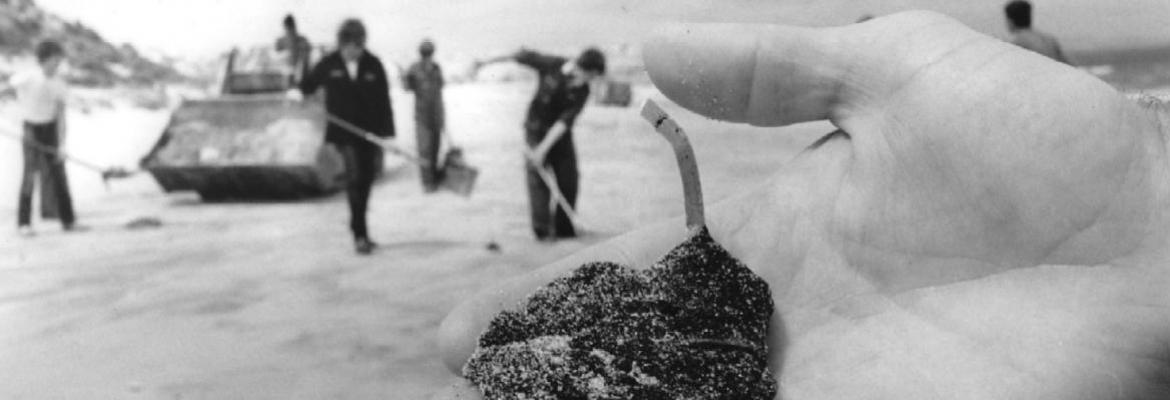
During clean up by the crew, a strong offshore breeze caused the oil to be blown overboard and into the water. Despite well-known and understood instructions and regulations, the crew of the Esso Gippsland failed to notify the Department of Marine and Harbours until three hours after the event, and then it was reported that although a spillage had occurred it was contained on deck. Ten hour passed before a report was made that an oil spill had been sighted five miles offshore. Later it was revealed by a helicopter overflight that there was an extensive amount of oil pollution.
Aerial spraying with a low toxicity dispersant was undertaken in an effort to assist in the breakup of the oil and the biodegradation process within the water column. Over the next two days gale force winds caused the oil to be brought ashore along Seaford Beach through to Aldinga.
Outcome
Petroleum Refineries Australia Pty Ltd and local council personnel worked together in an extensive attempt to remove all traces within a few days at a cost of approximately $60,000.
On January 23, the day after the spill, Channel 7 captured video footage of the Esso Gippsland, which was a valuable tool in the successful prosecution of this case. Fresh oil stains on the side of the tanker with sheen extending to the southward to the windrows and considerable oil patches on the waters of the Gulf were clearly caught on the tape.
Owners of the Esso Gippsland were ordered to pay a fine of $10,000 as well as $1133.40 in costs due to the fact that they were in breach of the Prevention of Pollution of Waters by Oil Act 1961.
Related information
Read about Australia's National Plan for Maritime Environmental Emergencies.